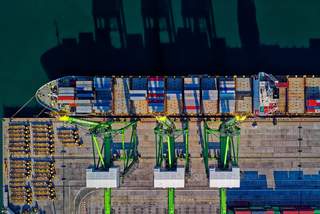
© Pexels/Tom Fisk
30 years of Single Market: Europe's unfinished success story
This year the European single market celebrates its thirtieth anniversary. Next to maintaining lasting peace, the single market is the greatest achievement of the European integration project:
- With more than 450 million citizens and 22 million companies from 27 states, it is the largest common market in the world.
- Thanks to an economic output of almost 16 trillion US dollars, it is the second largest economic area in the world after the USA.
- Trade within the EU and with the rest of the world accounts for almost a third of total world trade.
- Since its entry into force, the single market has increased the GDP of its member states by between twelve and 22 per cent and created more than 2.7 million new jobs.
The single market is thus the central foundation for Europe's success, prosperity, and international influence - today and in the future.
Completed single market remains wishful thinking
Despite this success story, the single market remains Europe's biggest and most important endeavor. Companies operating across borders, especially SMEs, are still confronted with a multitude of barriers and obstacles: diverging national legal frameworks, administrative burdens, lack of access to information, and even market foreclosure. Often, overcoming these barriers exceeds the capacities of companies or the anticipated benefits of an expansion. In reality, the free movement of people, goods, services, capital and data as set out in the EU treaties is often wishful thinking. Ultimately, this undermines the scale-up and growth of European companies and costs the EU up to 1.1 trillion euros or up to 8.6 percent in additional EU GDP.
Delivering on political promises: Demands of German industry
The dismantling of these barriers and the further deepening of the single market is a long-standing promise of European and national policy that remains unfulfilled to this day. In view of the potentially enormous growth gains and the central importance of a strong internal market for Europe's political and economic influence in the world, the BDI makes the following ten industrial policy demands:
- Declare further development of the s market a top political priority
- Unlock untapped potential in the services sector
- Push for the revival of the New Legislative Framework (NLF)
- Connect Europe, increase transport and mobility
- Create a European market for a sustainable circular economy
- Make full use of the opportunities of digitalisation
- Drive forward the integration of the European internal energy market
- Not undermine EU public procurement directives
- Dismantle tax obstacles
- Strengthen governance and respect the principles of better regulation



